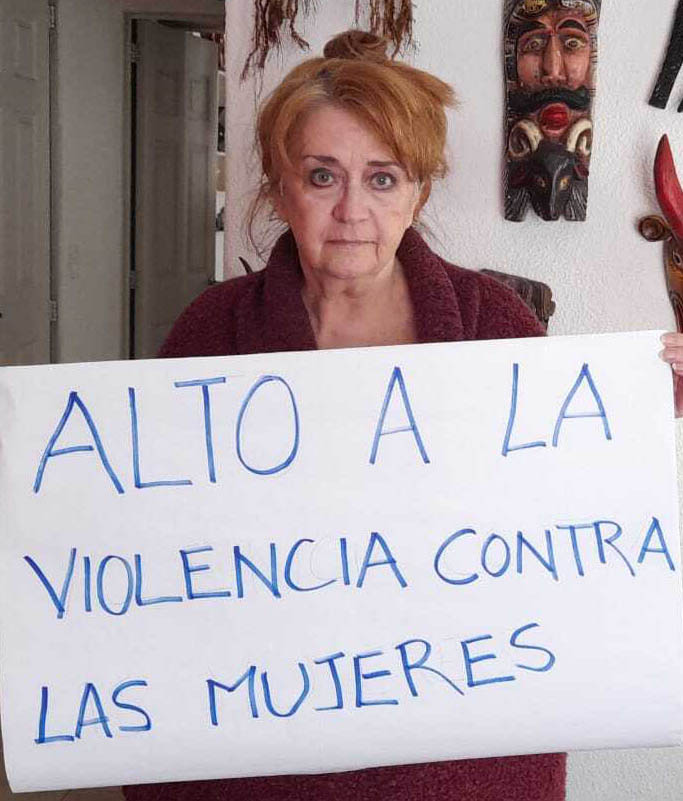The weekly newsletter of the México Solidarity Project

March 3, 2021/ This week’s issue/ Meizhu Lui, for the editorial team
Snug in the bosom of a loving family, I used to read about people living under the constant threat of terror and wonder how they could possibly carry on their daily lives. In Haiti under Duvalier, for instance, a macoute might randomly break down your door and kill you with a machete. But then violence entered my own life, via someone who supposedly loved me. I didn’t know when or where I might be choked, kidnapped, or shoved out of a moving car. I faced a violence that could erupt at any moment, while I was cooking or driving to work or just sleeping: performing the mundane functions of an ordinary life.
In México, one of the world’s most dangerous places to be a woman since the drug wars began, the threat of violence can come from almost anywhere. You can be beaten, raped, or killed for saying yes or for saying no, for speaking the truth or for telling a lie, for being trans or for simply being a woman, a disposable object to be used and discarded.
This sort of disregard for women’s lives has ancient roots. So does the resistance to this oppression. As organized movements, this resistance comes in waves — and from different sources of outrage. In mid-19th century México, higher-status women demanded the right to an education. In the 1930s, women teachers led an upsurge of peasants and demanded the right to vote and a right to land. In the 1970s, reproductive rights became paramount. Today, as we learn in this week’s issue from Mexican feminist Heather Dashner, the epidemic of violence against women has galvanized a new generation of activists.
Look around you. One of every three women you see has known the dread of wondering what violence a new day may bring. That fear stalks as close as the woman you pass in the parking lot or find sitting in the next room. As close as you. As close as me. A thought for International Women’s Day: Resistance can’t be optional so long as terror remains ordinary.

Heather Dashner has been a socialist activist since the 1970s. But she always disagreed with the prevailing thinking that women’s liberation should wait until after the revolution. Recognizing women as an oppressed group based on gender, Dashner joined the feminist movement and has been part of every struggle for women’s liberation in Mexico since then. She currently participates in the Feminists with the Voice of Corn collective.

To read the rest of this exciting bulletin click here!